2023 in Review: Facing Crisis with Solidarity, Love, & Steadfastness
Photo Credit: Hanae Takahashi, Friends of the Earth Japan. Instagram: @hanaetakahashi.i
With the year’s end rapidly approaching, our hearts and minds ache with the reality that each passing day without a ceasefire brings countless new horrors to Palestinians in the Gaza Strip, urging us to add our voices as loudly as possible to the global cry for an end to genocide.
Even in the midst of these bleak times, we find much inspiration in our movement partners in their absolute steadfastness, reverence for life, and unwavering commitment to liberation.
We are filled with gratitude to them for embodying solidarity, love, and courage in times of crisis, and to our community of supporters for the deep commitment to sustain these vital struggles. The following are some highlights of 2023 that stand out to us.
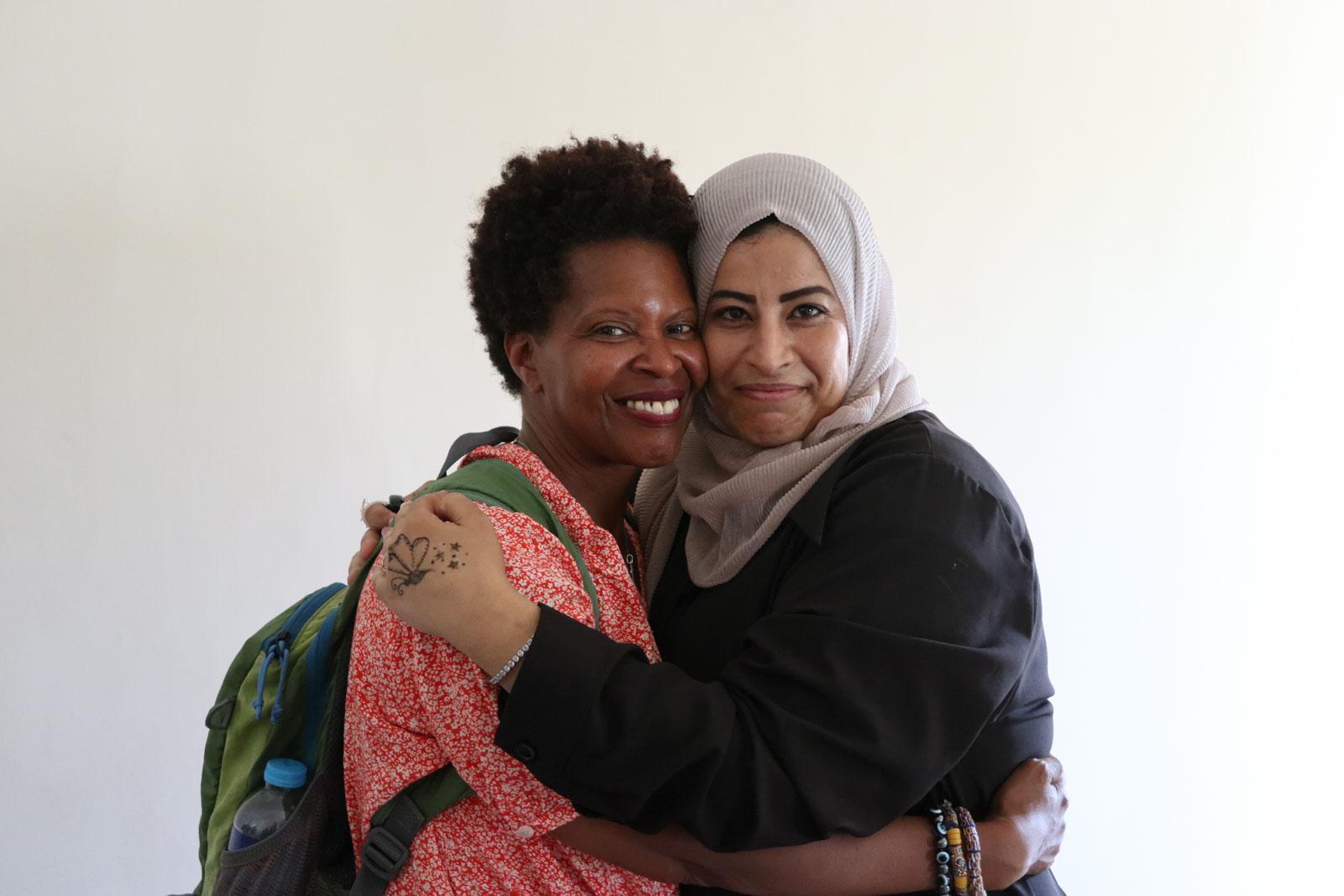
Deepening commitment to Palestinian liberation
This summer, we organized a delegation to the West Bank and Israel/‘48 to connect with our partners. A smaller group also traveled to Gaza. We were struck by the degree of repression, deprivation, and violence facing Palestinians — a foreboding indicator of what was to come — and by the warmth and hospitality we were met with. In the aftermath of October 7th, we launched an emergency appeal that has funded life-saving work on the ground by our Palestinian partners. We thank the hundreds of donors who have contributed. We also worked with our peers to organize Funders4Ceasefire, a powerful statement signed by 1000+ funders. Most recently, a member of our leadership team joined others in an act of civil disobedience in Washington, DC to send an urgent message to Congress to stop funding genocide in Gaza and the militarization of the US border.
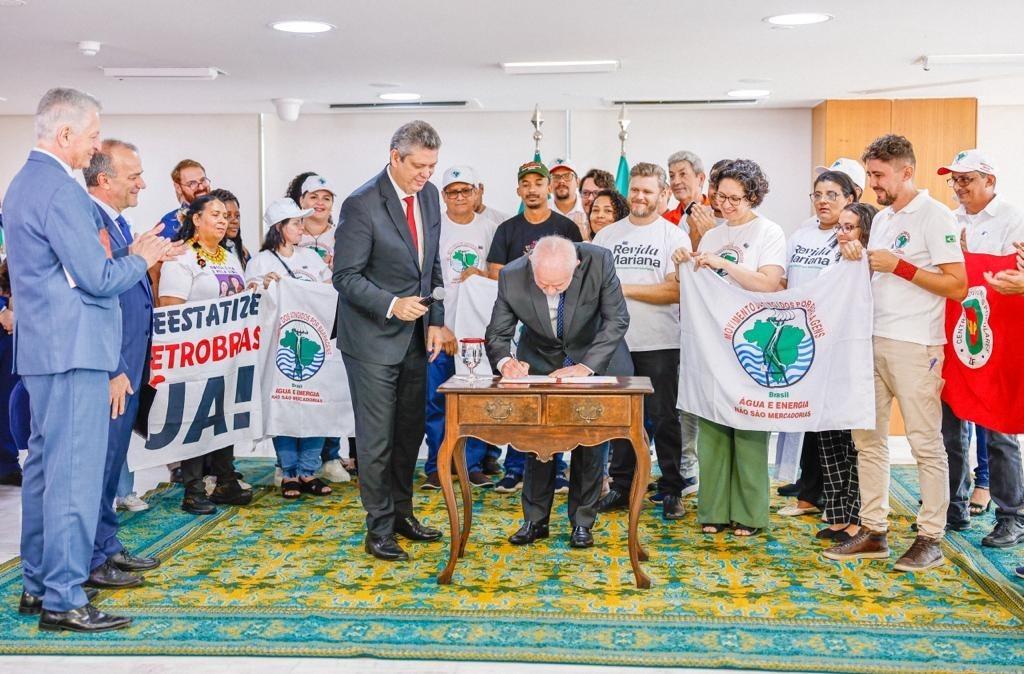
Confronting corporate agribusiness and hydropower in Brazil
A visit to Brazil this summer reinforced just how intense the situation is for the Guarani, Kaiowa, and other Indigenous Peoples on the frontiers of agribusiness expansion into the Amazon. Particularly appalling is the weaponization of toxic agrochemicals, sprayed not only on community food crops but on entire communities, in an attempt to deter resistance. But Brazil’s Indigenous movements won a partial victory this fall when President Lula vetoed proposed legislation that would have stripped them of their hard-won territorial rights. And just days ago, the Policy on the Rights of People Affected by Dams was signed into law — a victory that follows decades of struggle by our partner the Movimento dos Atingidos por Barragens/Movement of People Affected by Dams (MAB) and others.
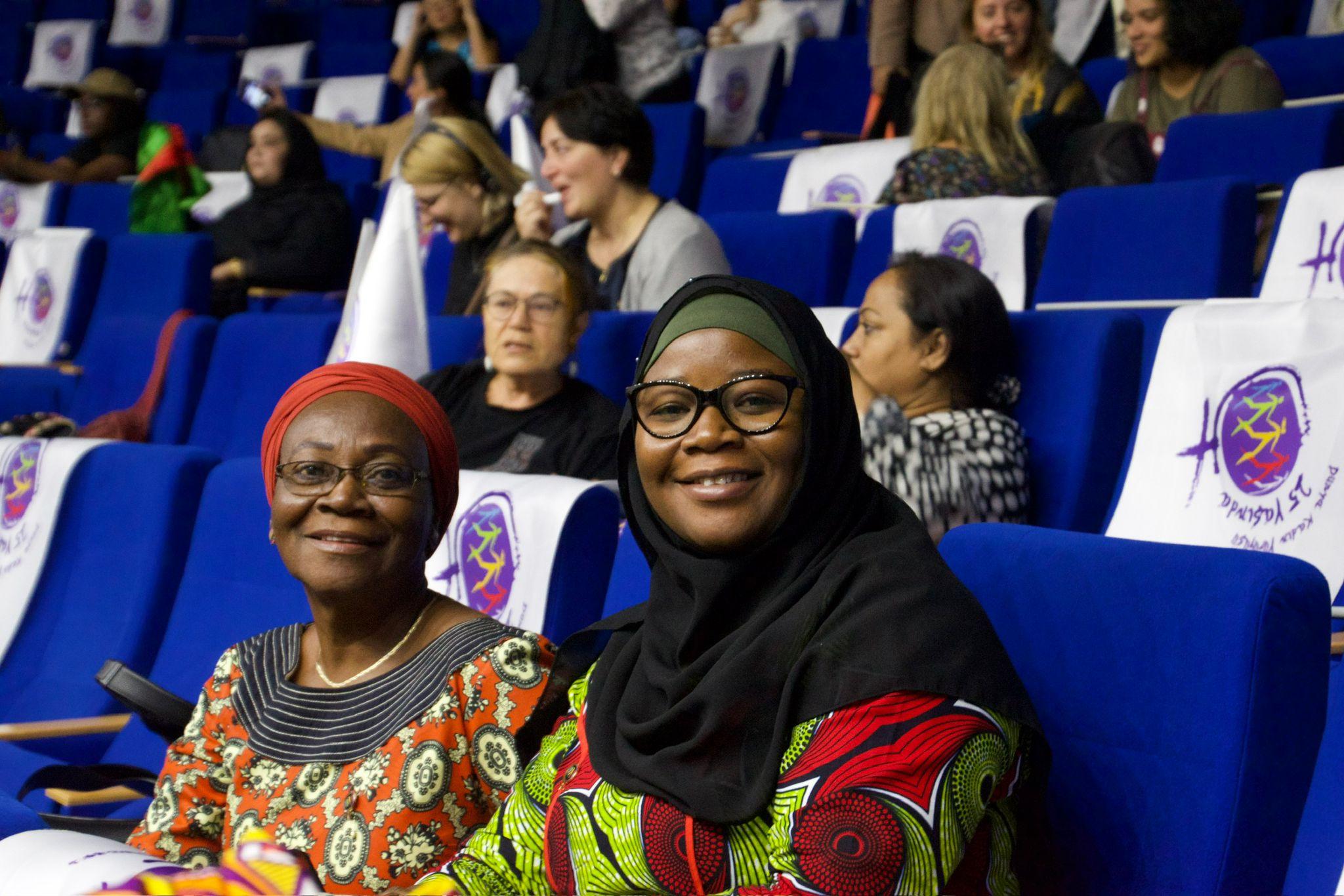
Building global grassroots feminist power
Our global movement partner World March of Women convened its 13th international meeting, with the slogan “Feminist Strength to Transform the World.” This gathering in Ankara, Turkey brought together participants from 65 countries to strengthen bonds, sharpen analysis, and build a common action agenda. A major focal point was organizing toward the 6th International Action in 2025, focused around the themes of defense of the commons; peace and demilitarization; feminist economies and food sovereignty; and bodily and sexual autonomy. Sadly, the meeting began with news of the passing of Nalu Faria, co-founder of the World March of Women and long-time leader of our partner Sempreviva Organização Feminista (SOF) in Brazil. Nalu’s spirit permeated the meeting, reaffirming shared commitment to the work ahead.
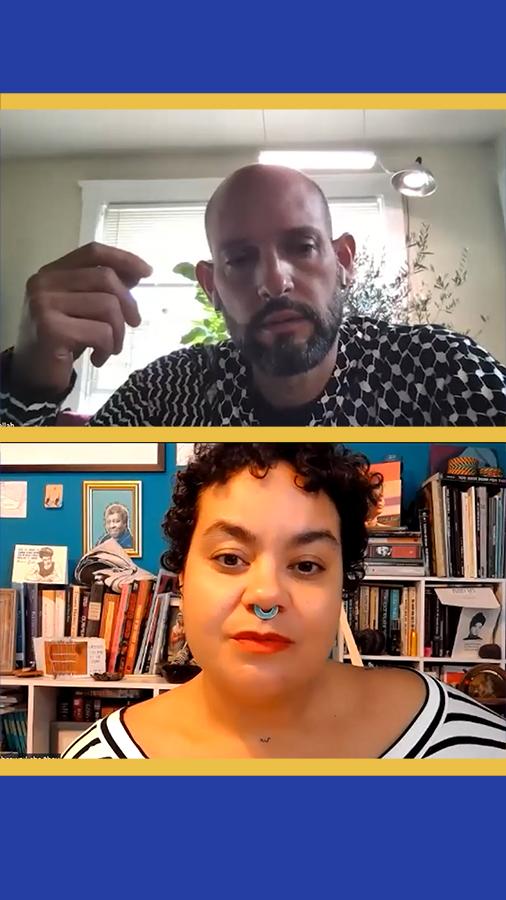
Nurturing healing and love in times of genocide
While we hadn’t anticipated the genocide that would be unfolding in Palestine when we began planning our Solidarity Encounter on Healing Justice in Black Feminist and Palestinian Liberation Movements, this virtual gathering could not have come at a more necessary time. Featuring the powerful combination of writer and activist adrienne maree brown, Devin Atallah of the Indigenous Palestinian decolonial healing collective CURCUM, and Ayman Nijm and Trina Jackson of Grassroots International, the dialogue that took place was gut-wrenchingly raw, emotional, and stirring. Devin and Ayman discussed confronting death and despair with revolutionary Indigenous love as Palestinians, while Adrienne and Trina powerfully bore witness to what they shared, urging us to garner the courage to shoulder more, embrace more, speak out, and speak up. Watch the recording here.
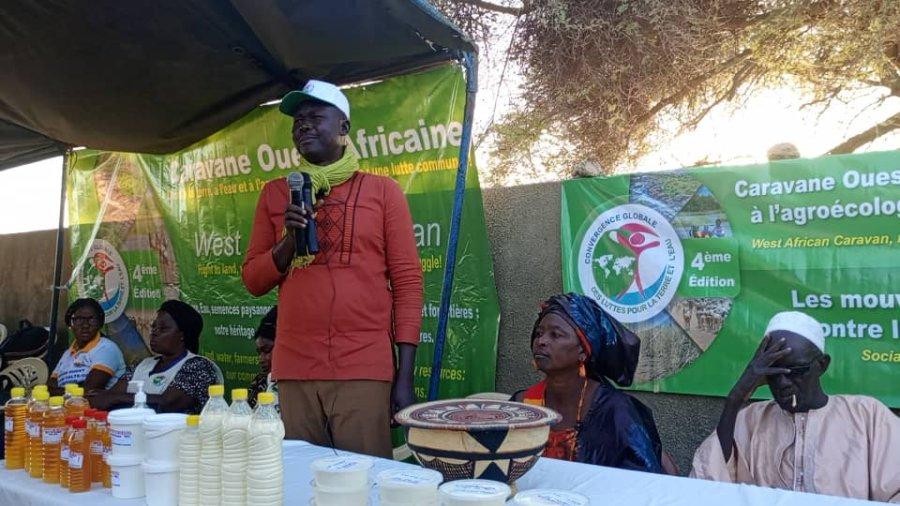
Elevating peasant-based agroecology across West Africa
With our support, Grassroots International’s West African partners and allies convened the 4th West African Caravan for the Right to Land, Water and Peasant Agroecology. This popular mobilization by social movements aims to influence decision-makers around the need for legislation on land, seeds, and other natural commons to benefit people rather than corporations and elites. The Caravan wove its way through Burkina Faso, Côte d’Ivoire, Mali, Senegal and The Gambia, making many stops along the way to amplify local struggles and bring grassroots voices to those in power. Since 2016, the Caravan has been a vital means of bringing visibility to land, water, and seed grabbing across the region. Its visits also elevate the power of peasant-based agroecology in feeding communities, building up local economies, and confronting the climate crisis.
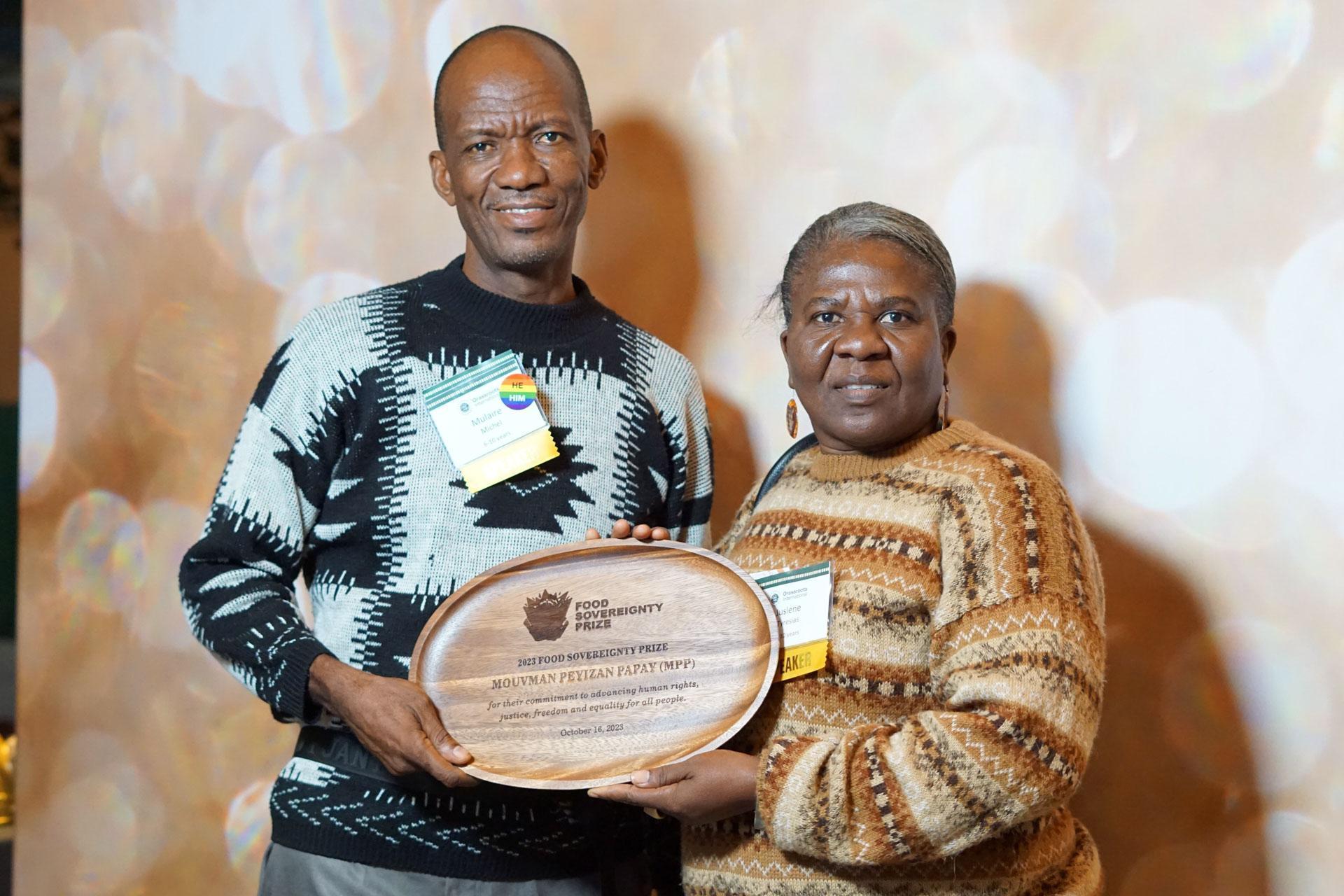
Celebrating Haitian-led solutions
For its groundbreaking efforts to advance food sovereignty and agroecology in Haiti, even amidst escalating violence political instability, our partner of three decades Mouvman Peyizan Papay/Peasant Movement of Papaye (MPP) was recognized as the international honoree of the 2023 Food Sovereignty Prize. Notably, this recognition coincided with MPP’s 50th anniversary. News of the Prize winners also came within days of the United Nations announcing plans to send armed forces into Haiti — the latest in an ongoing cycle of military and economic interventions that are largely responsible for the multiple crises facing Haiti at present. We salute MPP and affirm our commitment to stand with our Haitian movement partners and allies as they confront crisis in the here and now while paving the way toward transformation.
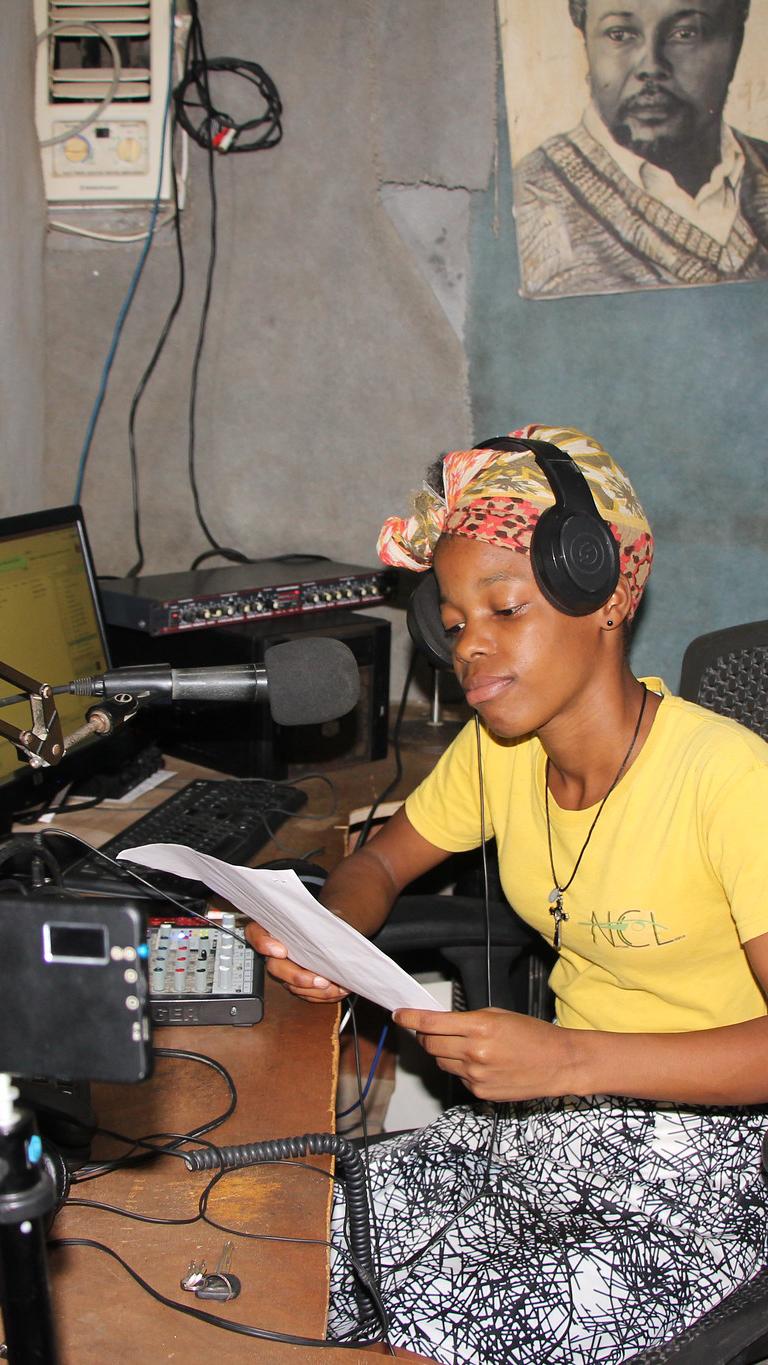
Building the infrastructure needed to sustain the struggle
This year marked the official launch of our Movement Infrastructure Fund. This new fund of $4 million (and growing) makes resources available for investment in collective infrastructure that will help create alternatives to extractive capitalist systems, furthering movements’ visions of sustainable, regenerative, cooperative, feminist economies. The funds we are making available are being used for projects like land rematriation; agroecology and political education schools; purchase and renovation of buildings for community programming; collective kitchens; community-controlled sustainable energy; reforestation and restoration of lands ravaged by extractive industry; community health care; and movement communications infrastructure. These funds supplement the core, flexible grants we provide.
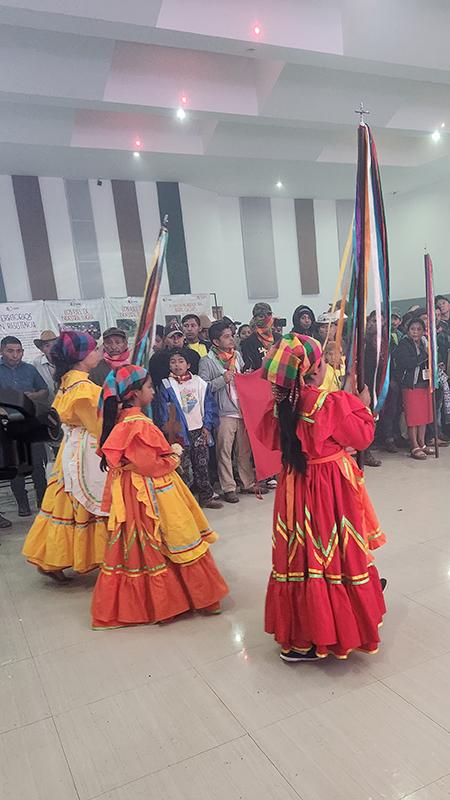
Bolstering collective protection of Black and Indigenous communities in Honduras
This fall, our partner Consejo Cívico de Organizaciones Populares e Indígenas de Honduras/Civic Council of Popular and Indigenous Organizations of Honduras (COPINH) celebrated “30 years of resistance” with a beautiful gathering of over 500 Lenca and other Indigenous Peoples from Honduras and across Latin America. This celebration was especially poignant as COPINH has faced ongoing repression for its tireless efforts to protect the sacred territory of the Lenca people of Honduras from destructive corporate megaprojects. Another of our Honduran partners,Organización Fraternal Negra Hondureña/Black Fraternal Organization of Honduras (OFRANEH), similarly faces ongoing repression for its work in defense of Afro-Indigenous Garifuna communities. In Vallecito, Honduras, where over 1800 hectares of reclaimed Garifuna ancestral territory continues to be under threat by corporations and narco-traffickers, our infrastructure grant supports a collective community protection plan organized by OFRANEH.
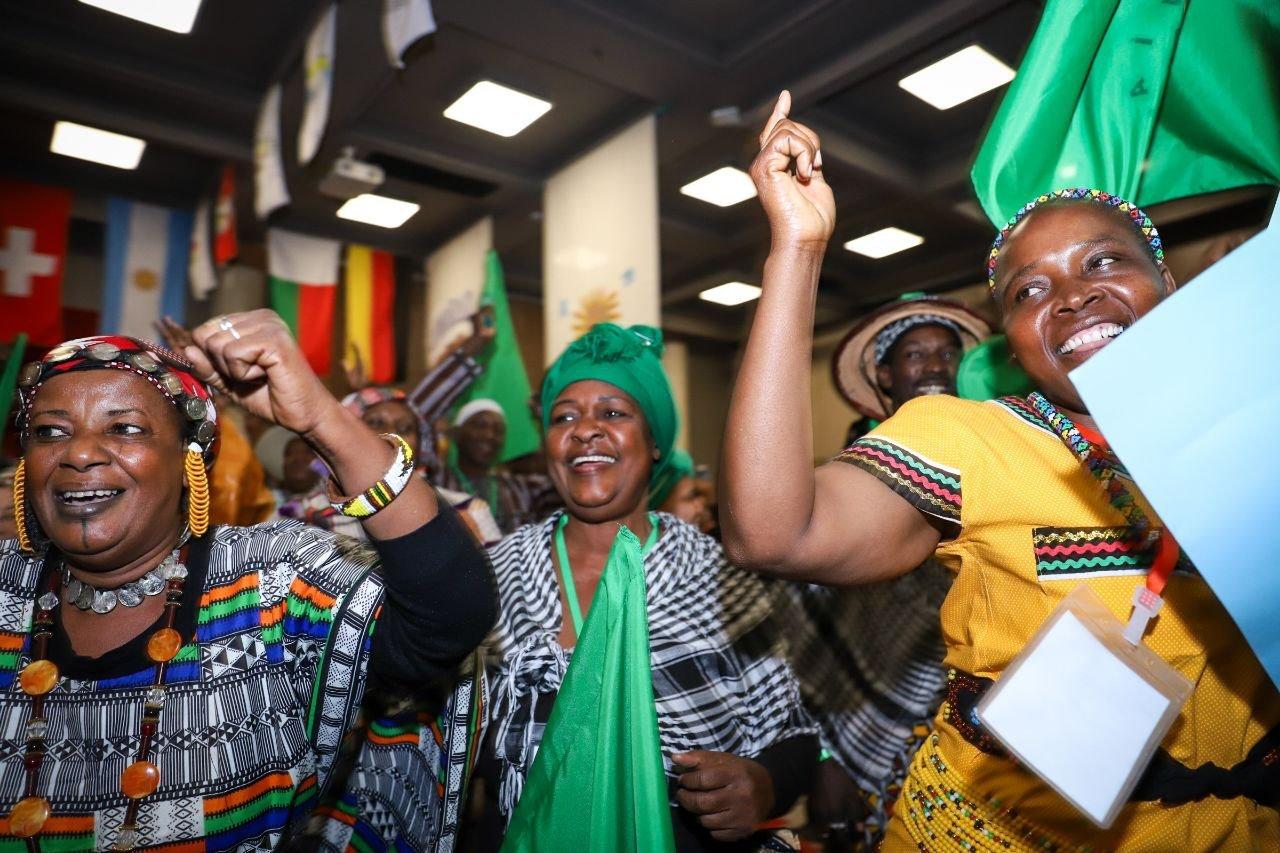
Building global power toward food sovereignty
The 8th International Conference of our global movement partner La Via Campesina was held in Bogota, Colombia with more than 400 delegates representing 185 organizations in 83 countries. Among the many highlights were a powerful outpouring of solidarity with Palestine and celebration of the official incorporation of the Arab Region and North Africa (ArNA) of La Via Campesina; a “men against patriarchy” space and a decisive reaffirmation of the movement’s position against patriarchy; and the 1st International Meeting of Diversities affirming gender and sexual diversities as vital components of a socially diverse movement. The Conference also generated further momentum toward the Global Nyéléni Forum in 2025, an inspiring process of global articulation around food sovereignty that we are honored to accompany.
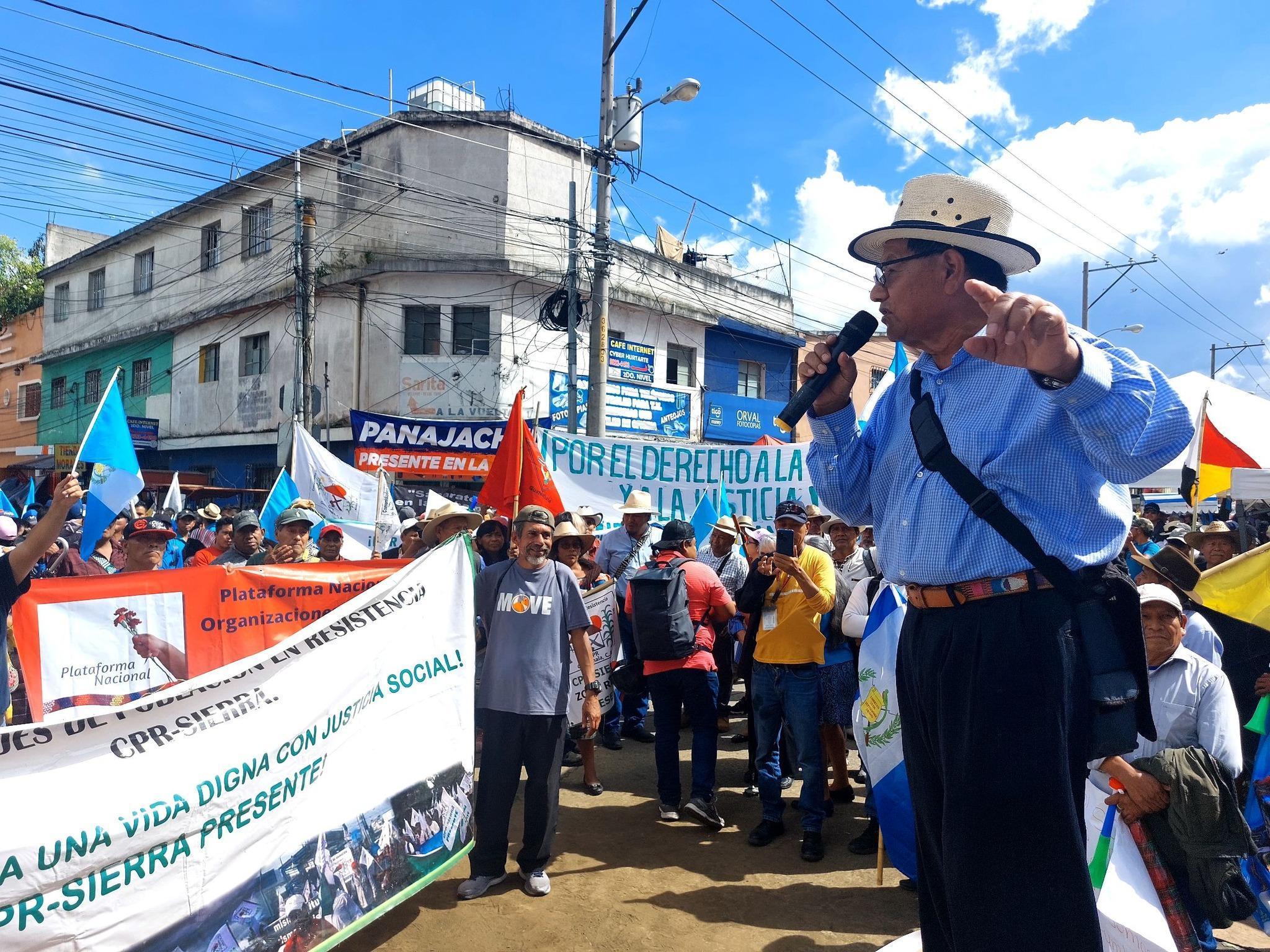
Defending democracy in Guatemala
In August, Guatemalans voted out the existing right-wing government, opting for a candidate with a platform of anticorruption and progressive policies. But the current government has indicated unwillingness to relinquish control come January, implementing a host of anti-democratic measures and cracking down on human rights defenders in an attempt to maintain power. Since October, Guatemalan movements have been out in the streets mobilizing tirelessly. They are calling for respect for the election results in the short-term while standing up for justice, self-determination, and the realization of basic human rights more broadly. We are proud to stand with our movement partners and allies who are among those at the forefront of these struggles, including Comité de Unidad Campesina/Peasant Unity Committee (CUC) and Sector de Mujeres.
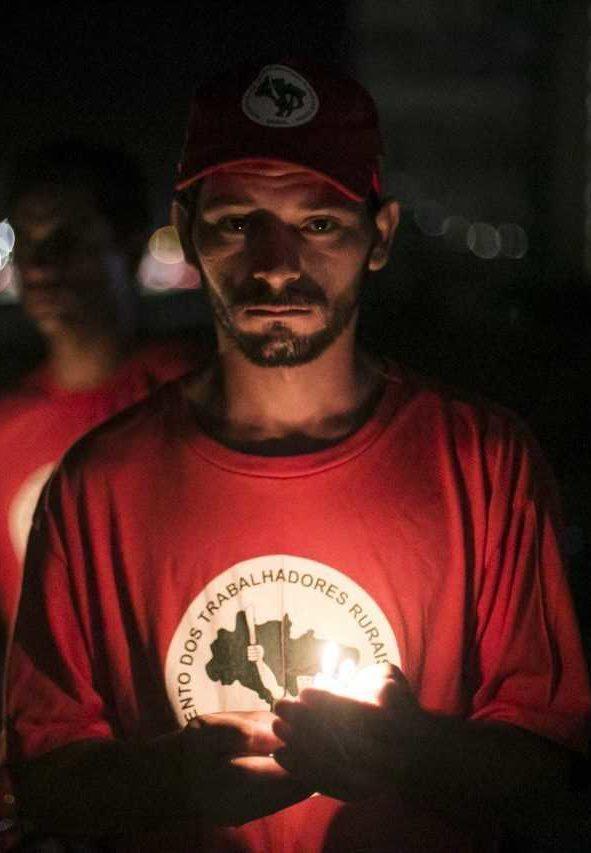
Strengthening movement-led human rights defense
Ongoing news of assassinations and threats against our movement partners and allies provides a stark reminder of the very real dangers inherent in human rights defense, and why supporting this work on multiple fronts is so essential. To strengthen mutual support and coordination of human rights defense, several of our global movement partners and allies have joined together to form a coordinated network for movement-led human rights defense — an effort which we are honored to participate in and support. Last spring, we gathered with representatives of diverse social movements at the Florestan Fernandes National School in São Paulo, Brazil, hosted by our long-time partner the Movimento dos Trabalhadores Sem Terra/Landless Workers Movement (MST), for a lively encounter to strengthen this growing network through coordination at the regional and global levels.
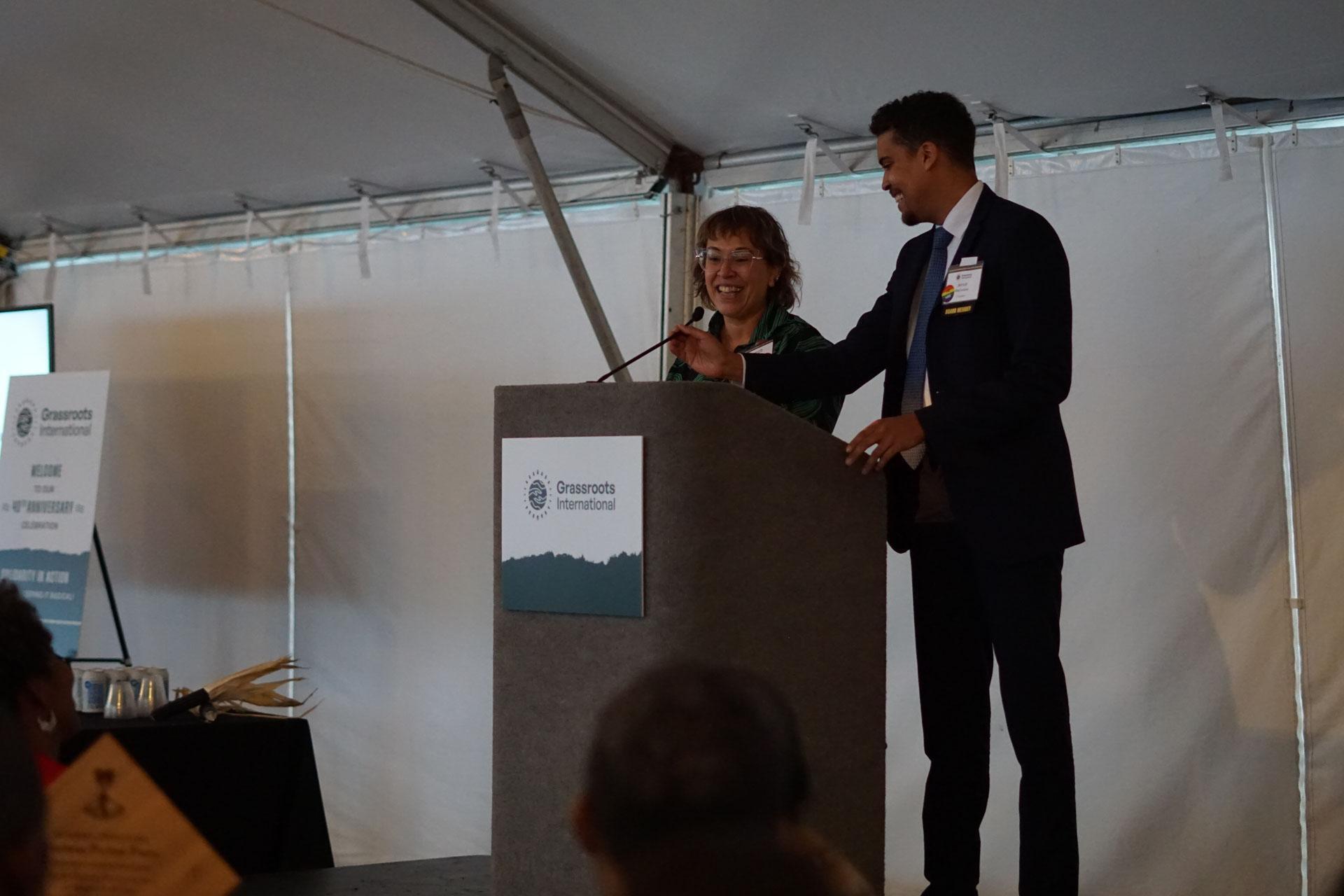
Turning 40
A special highlight of 2023 was reaching the milestone of our 40th anniversary and celebrating it with many of you in our extended community, both in-person and virtually. In addition to celebrations with our movement partners, donors, and allies, we marked our 40th through announcing our new Co-ED structure, revealing our new logo and overall refreshed look and feel, launching our new website, debuting our new organizational video, and releasing our 40th anniversary booklet. Our anniversary afforded us with a chance to look back, recalling our founding and the ways in which we have evolved, together with movements, over the years. And more importantly, it prompted us to look forward, rededicating ourselves to the movements and struggles that are paving the way and to breaking new ground together in solidarity philanthropy. Thank you for joining us.
